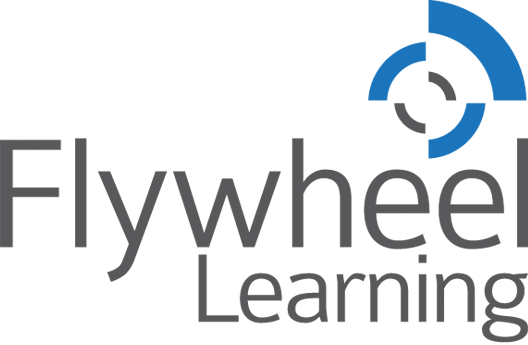As with all businesses and organisations, leaders will be busy wrestling with the challenge of managing and mitigating the impact of the Coronavirus pandemic. Alongside business continuity plans, guidance from Public Health and other official channels there are so many other decisions to be considered and worked through. Some of these big decisions are likely to be taken out of school leaders’ hands but the devil will be in the detail in how each school manages absence, remote working and potential school closures. If there was ever a time that symbolised leadership in a VUCA world, it is now – Volatile, Uncertain, Complex and Ambiguous
After reading Shane Parrish’s Twitter feed (@ShaneAParrish) this morning about the potential 2nd and 3rd phase consequences of the pandemic we did some brainstorming in the Tower Hamlets Education Partnership this morning to try to support headteachers across 100+ schools about the leadership thinking involved in this type of planning. It is very much a first draft and full disclosure, it is not the result of any official expertise other than working as a Headteacher for six years and my subsequent system leadership experience.
This is the outcome of our brainstorming. Is not designed to be comprehensive list or replace the official guidance that schools are receiving from the DfE, Public Health and Local Authorities. I am sure that you will have already thought about much of what follows below and indeed have things you can contribute to the discussion. We are also aware that remote working for students looks very different for EYFS and Post-16 so not all the comments will be applicable to all settings. Please accept these thoughts in the spirit of collaboration and support that they are intended and in the hope that it may spark some debate, fresh thinking or help prevent leaders from feeling alone in some small way. If there is anything that you can add or think would be helpful to colleagues, please get in touch and I’ll do my best to update and share.
Recognising my vulnerability and limitations, here’s what we came up with…
Coronavirus and schools – a first draft
Considering possible second and third phase consequences
Should there be a strategy of widespread, extended school closures one would hope that there will be plenty of guidance from Public Health, the DfE, Local Authorities and Multi-Academy Trusts to support Headteachers in the practical and legal implications. The list below is not guidance to support these formal processes. They are designed to stimulate discussion and thinking in schools as part of a wider business continuity plan. There is potentially lots more that I haven’t considered so please add to it and share it with me and we will collate, update and circulate.
Gov.uk guidance for educational settings
Helpline: 0800 046 8687
School Calendar
- What events/ visitors are planned for the next 6 weeks? What can be moved if required? Which would incur cancellation fees/ notice periods?
- Are there any school trips planned? What are implications if parents don’t want their child to participate?
- Are there moderation or examiners booked in over the next 4-6 weeks? What are the contingency plans with the exam boards?
Remote working
- Are there protocols/ expectations for working from home? i.e. availability; checking e-mails; setting and assessment of work
- What is the likely impact on teachers that are looking after their own children at home?
- What does flexible working look like under these conditions?
- What does remote working look like for associate/ support staff?
- Are there costs associated with working from home i.e. heating, electricity, broadband etc – what are implications for this for the school/ individual?
Staff absence
- If key staff are absent but the school remains open, what is the strategy? – i.e. ‘Lead Lessons’ (2-3 classes being taught by one member of staff with non-specialist /associate staff support); pre-recorded content ready for key topics left to be taught (i.e. via school You Tube channel); live video links from one classroom to another etc
- If school is closed how do staff inform you that they are unwell and what implications would that have on expectations for working remotely, distance learning etc? It is unlikely that GPs will be able to process Statement of Fitness (‘fit notes’) – what is the impact of this, if any?
- What are implications for staff who are looking after sick dependents/ relatives during this time?
Staff well-being
- Remote working could lead to increased feelings of isolation. In addition to collaborative working practices outlined below, what else can the school do to connect and increase the sense of ‘We’ during any period of school closure?
Exam classes
- The number of special consideration applications could spike – what would be the impact on workload and how will it be evidenced?
- What will be the impact on evidence gathering/ teacher assessments and what can be done to mitigate this?
- Do students need to sign exam paperwork and, if so, is it worth doing this sooner rather than later?
- Remote access/ distance learning strategy – how do you QA it, especially for key groups?
- Can teachers start pre-recording content now? Especially for remaining topics and revision materials
- What workbooks / hard copies can students reasonably work through at home
- If you are a PiXL (or similar) member, who is the expert(s) in the school for signposting resources so save all staff individually trying to navigate the website/ apps – allow resources like this to do the heavy lifting
Non-exam classes
- How can you be creative in setting meaningful work that is linked to curriculum plan? i.e. core work that is dictated by the school and then an interest project based around a theme? Is it better to work in chunks i.e. Monday AM is Maths, PM is MFL etc
- What are the implications for families without broadband or ICT access at home? Does the school already know who these families are?
Strategic Planning
- Working from home provides a rare and valuable opportunity for middle leaders and teachers to work on curriculum mapping, schemes of work and resources. What will be the expectations and how will this be monitored? Share consistent templates/ exemplars sooner rather than later
- For SLT and others with a low teaching load – what is their role in supporting staff, monitoring etc? What big strategic work can you build momentum behind now?
- Busy leaders and teachers rarely find time to read professional literature or engage with podcasts/ TED Talks etc – could this form part of a professional learning strategy at this time?
Safeguarding and health
- What is the impact on safeguarding if schools are closed for an extended period?
- How will this impact on exchange of information/ multi-agency work?
- How can/ will vulnerable students and families be able to contact the school? Some schools are supplying key staff with pay as you go mobiles for a Pastoral hotline which they will share with students
- How can we support FSM students if they are unable to access school catering? Are there any other solutions to this in the local community? See @vicgoddard Twitter thread on this
- School nurse service likely to be under increased pressure. What does this mean for EHCPs and vulnerable students?
- It is possible that there could be bereavements as a result of any widespread pandemic. How will the school be informed of these if it is closed? How will it support students, staff and the wider community in the short and long term?
Home school communication strategy
- If school is closed for an extended period of time who will monitor communication from home? What is the agreed response time? How do parents/ students communicate with subject staff re: queries regarding work set? How does the school deal with informal complaints from parents that sit outside the complaint’s procedures? How will you support staff remotely with this?
- Can the school website help with this?
- The school is often at the heart of its community and many people will look to it for reassurance and comfort. What are the most effective and powerful ways to communicate with the school community regularly? How will different mediums be used? Who is quality assuring all communication to ensure consistency of message etc?
Recruitment of staff
- What impact will school closures have on advertising and recruiting of staff? If you choose to delay it, will this impact on the number and quality of applications? How could video conferencing packages support this? Will any offers of employment be conditional on seeing them teach – if so, how will this work?
Current HR issues or live complaints
- School closure may have an impact on timelines, evidence gathering etc. What would be the plan for these and how does it fit in with current policies etc? How will this be communicated with those affected?
Ofsted
- Widespread school closures would impact on Ofsted timelines and likely create a backlog for inspections
Procurement
- Before investing significantly in conference calling apps, remote working or virtual learning platforms, can schools work together to secure efficiencies? What free platforms are schools using and how can we support each other to upskill/ learn faster as opposed to schools all trying to do this independently?
Collaboration and support
- If there are school closures across Tower Hamlets, how can THEP facilitate knowledge sharing, collaboration and support for school leaders? i.e. regular conference calls for HTs, Whatsapp group, briefing notes that collate good practice/ emerging questions etc
- How can you facilitate smarter working practices so that staff aren’t all replicating the same work?
- How can schools share resources, systems and protocols to support all colleagues across the local area as opposed to each school trying to solve these unique challenges alone?
We don’t have answers or solutions to all these questions but it hopefully helps to shape our thinking, leading to a richer debate and understanding of a complex problem.
“Questions open a space in your mind that allow better answers to breathe.” (Richie Norton)

